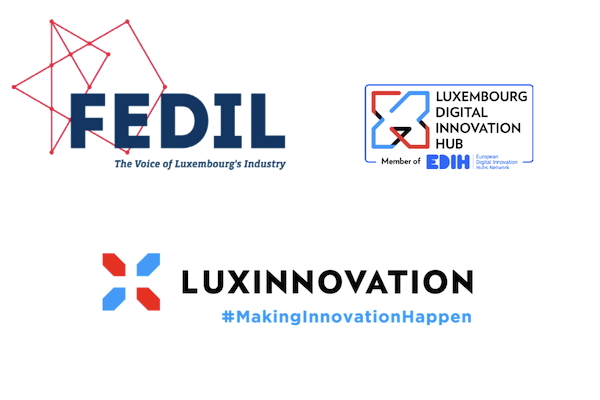
On Tuesday 3 June 2025, FEDIL, in collaboration with the Luxembourg Digital Innovation Hub (L-DIH) and Luxinnovation, published the results of their national survey into the adoption and impact of artificial intelligence (AI) across the Luxembourg’s industrial landscape.
The three partners conducted the survey amongst 144 companies in Luxembourg, drawing responses from 114 companies across a broad range of sectors, including Manufacturing (28%), ICT (16%), Construction (16%) and Transport & Logistics (11%). Companies of all sizes were represented, ranging from small enterprises with one-to-ten employees to large corporations with over 1,000 employees.
The authors of the report noted that the survey reveals a promising uptake of both AI and Generative AI (GenAI) across sectors, whilst calling for greater expertise, governance and infrastructure of the technologies. The report described AI as “a strategic asset” and highlights “a strong belief in AI’s ability to drive business transformation”.
According to the report, respondents to the survey anticipate that AI will significantly enhance process optimisation and control, while also driving financial gains. The expected benefits in cost savings and process efficiency are especially pronounced in the manufacturing sector, where eight out of ten companies foresee tangible improvements.
The report detailed that 63% of respondents placed themselves in an advanced stage of AI maturity, reflecting a proactive approach to leveraging AI for business success and that the manufacturing sector showed a strong interest in AI, though with cautious execution. In contrast, technology-driven sectors like ICT exhibit high levels of AI integration.
Generative AI is largely perceived among respondents as an opportunity for companies and individual users alike, with a majority of companies embracing the GenAI, recognising its potential to boost productivity, improve customer service and streamline internal processes. The reported also noted that governance is gaining traction, with over half of the surveyed companies reporting they have implemented formal data and AI governance policies, marking a step toward stronger data integrity, regulatory compliance and risk mitigation.
Despite the optimistic outlook, the authors of the report noted several challenges which continue to hinder widespread AI adoption:
- data accessibility and quality remain major obstacles as many companies struggle to gather the reliable datasets needed to power AI solutions;
- a lack of internal expertise and difficulty in identifying high impact use cases further hinder momentum, reflecting a broader digital maturity gap;
- the AI ecosystem is still fragmented, as limited visibility of key players, combined with a mismatch between AI training supply and corporate demand, restricts scaling efforts;
- data sovereignty is emerging as a strategic concern, with the low rate of local hosting for GenAI tools raising questions around security and regulatory compliance.
The report concluded that the results of the survey show that Luxembourg’s industrial sector is clearly engaging with the potential of AI technologies. However, while optimism prevails, there is an urgent need to translate this into sustainable implementation. The report recommended that to achieve this companies must be equipped with targeted training initiatives that help bridge current knowledge gaps and develop internal expertise, greater visibility and coordination across the AI ecosystem and that a broader and more consistent adoption of robust data and AI governance frameworks is critical for ensuring data integrity, regulatory compliance and ethical deployment.








